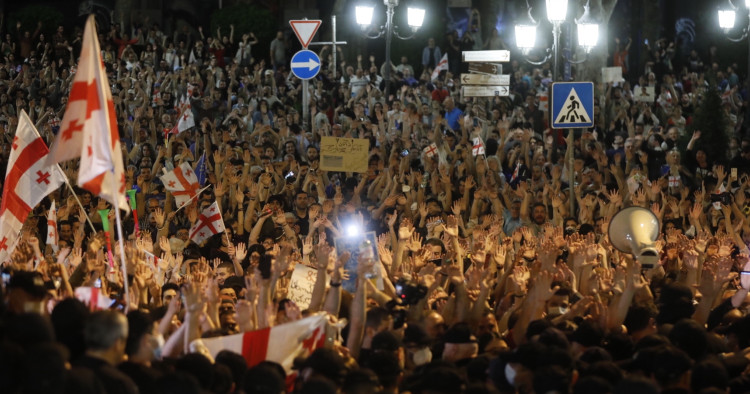Georgia is entering one of the most difficult stages in its modern political history. The country finds itself in a state of deep division, with trust in both government and opposition collapsing and democratic institutions struggling to maintain legitimacy. For many Georgians, the political process no longer reflects their will but has become a theater of manipulation and self-interest.
Opposition’s Decline After Years of Failure
Over the past decade, Georgia’s opposition parties have organized numerous protests and promised far-reaching change. However, none of these campaigns managed to deliver the expected results. Mass demonstrations that once mobilized thousands of people often ended in stalemates or symbolic gestures. The repeated arrests of young activists and internal feuds among opposition leaders only deepened the crisis. Today, many citizens see the opposition as a force more concerned with its own survival and privileges than with the aspirations of society. This perception has left the opposition unable to mobilize broad public support, weakening its role as a true counterweight to power.
Government Accused of Consolidating Power
At the same time, the ruling party is under fire for allegedly monopolizing the political process. A growing number of Georgians believe that elections have become little more than a ritual designed to maintain control over state institutions rather than to reflect the will of the people. Complaints about the lack of transparency, manipulation of resources, and pressure on the media have become widespread. As these concerns intensify, the sense of apathy among citizens deepens, leaving democracy increasingly fragile.
Institutions as the Last Hope
Despite the political deadlock, attention is shifting toward Georgia’s state institutions. Courts, electoral commissions, and independent agencies—though not free from criticism—are seen as the last potential safeguard of legality and transparency. Both Georgian citizens and international partners are calling for credible reforms that could guarantee free and fair elections. The renewal of democratic processes is now seen as a prerequisite not only for restoring trust inside the country but also for preserving Georgia’s role as a reliable partner for the European Union and the wider international community.
Democracy at a Crossroads
For ordinary Georgians, the current crisis has become an existential dilemma. The fatigue from empty promises, endless political maneuvering, and elections that inspire little confidence has reached a breaking point. People are asking who, if anyone, can restore faith in the state and lead the country toward genuine democratic transformation. Georgia today stands at a crossroads: either it embraces reform and renewal, or it risks sliding deeper into disillusionment and stagnation.
📎 Read more: pup.in.ua





